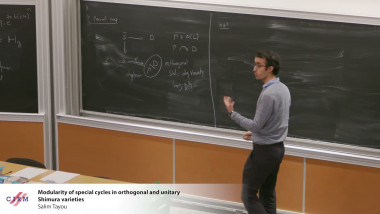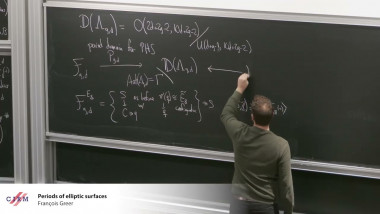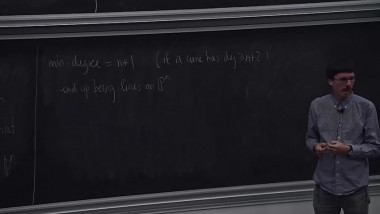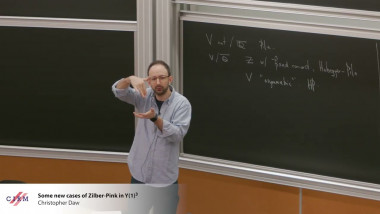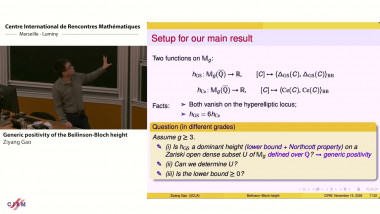Déploiement, Stratification, Monodromy Group
Appears in collection : 1923-2023, Centenaire de René Thom
A main question addressed in this talk is: How to compute the geometric monodromy group of a complex hypersurface singularity? A seminal example is given by the Pham spine in the Milnor fibre of a Pham singularity: From the spine one computes the integral local homology monodromy. We show how this spine computes by a tête-à-tête construction the symplectic local monodromy diffeomorphism as a generalized Dehn twist with core the spine, [AFPP]. In case of curve singularities on normal surfaces one gets a characterisation of all possible local monodromy diffeomorphisms as a mixed tête-à-tête diffeomorphism by the work of Portilla and Sigurdson, [PSi]. By a real morsification one obtains a generating set of monodromy mapping classes for the monodromy group of the local versal unfolding. Recently Portilla and Salter have described this group as a framed mapping class group, [PSa]. In the case of plane curve singularities of type An a real analytic stratification of the space of smooth fibres will be presented. The top dimensional strata are cells and the monodromy is given by wall crossing data. We propose as conjecture a généralisation to all plane curve singularities based on the work of Portilla and Salter.











